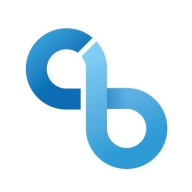

GitLab and CloudBees are key players in the CI/CD space. Based on feature sets and user feedback, GitLab offers simplicity and user control, while CloudBees excels in scalability and complex integration.
Features: GitLab offers comprehensive CI/CD pipelines, seamless Kubernetes integration, and independent branch management for streamlined collaboration. CloudBees provides advanced scalability, application delivery automation, and enhanced security features.
Room for Improvement: GitLab needs better integration with AWS, improved metrics, and enhanced security. CloudBees could work on simplifying its interface, improving performance, and integrating modern AI capabilities.
Ease of Deployment and Customer Service: GitLab supports various infrastructures, including hybrid clouds and on-premise, with helpful community support and faster assistance for paid plans. CloudBees focuses on public cloud deployments, offers reliable customer support, yet may demand user effort for updates.
Pricing and ROI: GitLab provides a free open-source version with scalable pricing for all team sizes but may be pricy at premium levels, offering quick ROI due to enhanced productivity. CloudBees, while more expensive, delivers good ROI through its robust features and security, appealing to organizations needing extensive integration and management solutions.
Migrating to GitLab is bringing time-saving benefits, and everything is easier to automate.
We have saved time significantly, reducing deployment time from four hours to five minutes per deployment.
I have interacted with architects for some advice during the implementation, and they were prompt in their response.
I have had meetings where they taught me, explained things, and provided guidance for starting from scratch.
We have rarely needed to escalate issues to technical support since GitLab usually runs seamlessly.
It has all the features required for our coding and deployment needs, which makes it scalable to our changing requirements.
We're transitioning to OpenShift for future scalability with increased user numbers.
I have not encountered any performance or stability issues with GitLab so far.
It would be beneficial to have a user-friendly interface for setting up these configurations, instead of just writing YAML files.
The UI has remained the same for a couple of years and could benefit from an update with AI features and better customization.
GitLab is a great tool for developers, it lacks project planner features.
The pricing of GitLab is reasonable, aligning with what I consider to be average compared to competitors.
The price is high, and it limits user accessibility.
Even when working in other small organizations, we opted for GitLab as it was cost-efficient.
As we implement automated testing and DevSecOps, it speeds up the process by forty to sixty percent.
The Ultimate version offers enhanced features for security scanning through DAST and SAST analysis, which have greatly benefitted our project workflow.
The feature I appreciate the most about GitLab is its ease of use and compatibility, which allows for straightforward building and deployment processes.


CloudBees DevOptics is a robust software utilized primarily to enhance CI/CD processes by offering real-time visibility into Jenkins pipelines. It facilitates effective monitoring, incident management, and decision-making through comprehensive data analysis. Users value its features like DevOps performance metrics and seamless tool integration, leading to improved operational efficiency and productivity in organizations.
GitLab is a complete DevOps platform that enables teams to collaborate and deliver software faster.
It provides a single application for the entire DevOps lifecycle, from planning and development to testing, deployment, and monitoring.
With GitLab, teams can streamline their workflows, automate processes, and improve productivity.
We monitor all Build Automation reviews to prevent fraudulent reviews and keep review quality high. We do not post reviews by company employees or direct competitors. We validate each review for authenticity via cross-reference with LinkedIn, and personal follow-up with the reviewer when necessary.